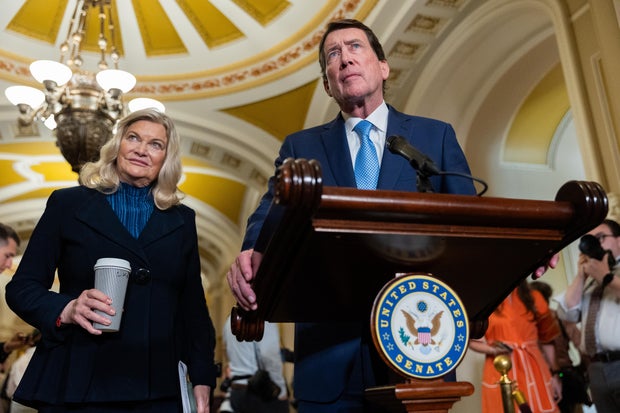In a significant development shaping the future of digital finance, the United States Senate has passed a comprehensive bill that aims to establish a regulatory framework for stablecoins. Named the GENIUS Act, this legislation seeks to bring stability and security to the rapidly growing $250 billion stablecoin market. Following a path through the Senate marked by substantial debate and amendments, the bill was finally approved with a majority vote of 68 to 30.
Stablecoins, which are cryptocurrencies tied to the value of stable assets such as the U.S. dollar or gold, have increasingly become a cornerstone of digital transactions. They offer the potential for faster and cheaper payments compared to traditional banking systems. The GENIUS Act, introduced by Republican Senator Bill Hagerty of Tennessee, is seen as a groundbreaking move that could transform the U.S. financial system by enabling businesses and individuals across the country to settle payments almost instantaneously.
Despite the bill’s ultimate success in the Senate, its journey was not without controversy and complexity. Initially, the bill received bipartisan support and was moved forward by the Senate Banking Committee in March. However, it soon encountered obstacles as political and ethical concerns surfaced. A critical point of contention arose when it was revealed that a company backed by Abu Dhabi had used $2 billion in stablecoin purchased from World Liberty Financial—a crypto firm linked to the Trump family—to invest in cryptocurrency exchange Binance. This revelation led to concerns regarding potential conflicts of interest and corruption, particularly given President Trump’s and his family’s known involvement in cryptocurrency ventures.
The perceived urgency among Democrats to address these issues stymied the bill’s progress in early May. Calls for stringent measures to protect against corruption, ensure consumer safety, and uphold national security intensified, leading to a halt in the legislative process. This prompted weeks of intense negotiations, after which several critical amendments were made to the bill, gaining sufficient Democratic support to move forward. These amendments included mandatory disclosure of stablecoin holdings over $5,000 by members of Congress and executive branch officials, enhanced bankruptcy protections for bank depositors, and formal rules by the Treasury for monitoring suspicious transactions.
However, not all concerns were alleviated, particularly among some Democrats who felt the bill still lacked sufficient safeguards. Senator Elizabeth Warren of Massachusetts was notably outspoken, describing the bill as insufficient and initially helping to block it in the Senate. She advocated for a robust amendment process as a condition for advancing the bill. Ultimately, adjustments were made to include more than 100 proposed amendments from both Democrats and Republicans, addressing a range of issues from preventing high-profile government officials from profiting off stablecoin ventures to restricting large online platforms from issuing these digital assets.
Despite these efforts, two Republican Senators—Rand Paul of Kentucky and Josh Hawley of Missouri—consistently voted against the bill. Senator Paul questioned the necessity of federal regulation in the cryptocurrency space, while Senator Hawley expressed concerns about granting excessive control to tech giants.
Supporting the legislation, Democratic Senator Kirstin Gillibrand of New York defended the bill as a crucial step for consumer protection and regulatory clarity for businesses competing in the global market. She acknowledged that President Trump’s involvement in the cryptocurrency market was problematic but emphasized that it did not undermine the quality of the legislation.
The passage of the GENIUS Act represents a critical development in the regulation of digital assets in the United States. As it ushers in potentially transformative changes for the financial system, the act also reveals the complexities and challenges of regulating an emerging and rapidly evolving technology. The dialogue surrounding the bill highlights the delicate balance lawmakers must maintain between innovation, consumer protection, and ethical governance in the digital age. With its approval, the United States takes a significant step forward in defining the legal landscape for cryptocurrencies, particularly stablecoins, setting a precedent that may influence future digital currency regulations worldwide.
As the GENIUS Act moves from legislative approval to implementation, its long-term impact on the U.S. financial system and the global digital economy remains to be seen. However, its passage marks a notable moment in the ongoing integration of technology and regulation, reflecting a broader shift towards a digital-first financial environment while attempting to address the inherent risks of this new frontier.









